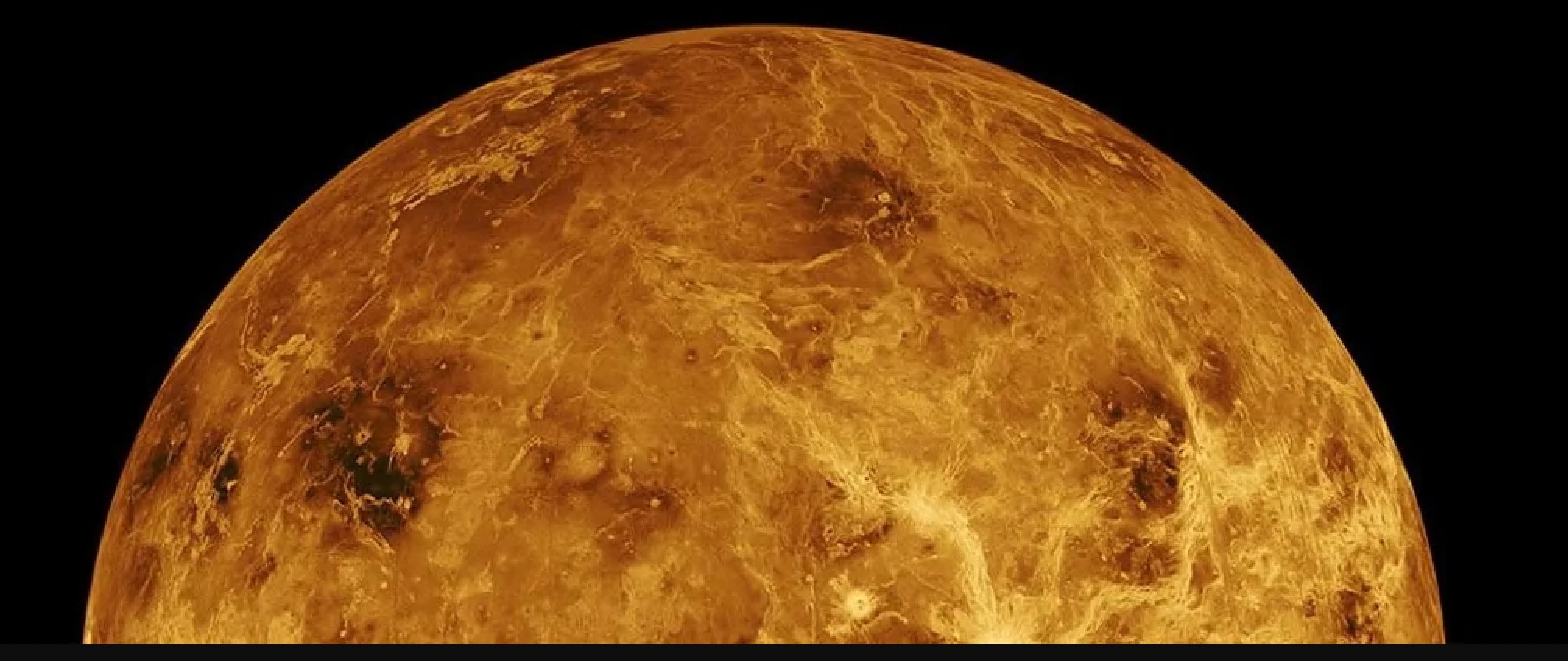Create a free profile to get unlimited access to exclusive videos, sweepstakes, and more!
If aliens ever crawled on Venus, they would have had to be life as we never knew it

Venus may have been named for the Greco-Roman goddess of love and fertility, but the planet itself is anything but—scorching, poisonous and probably downright barren.
Would we find Cthluhu on Venus? Probably not. Something like that would have a better chance of surviving in the watery depths of Enceladus, Europa, or Titan. While scientists who did suspect there could be microbes floating around in the toxic skies of Venus, especially since the discovery of phosphine in the atmosphere almost broke the internet last year, new research has found that life thriving on Venus (at least life as we know it) is terribly unlikely. It is too dry for even the toughest extremophile to survive.
“The recent suggestion of phosphine in Venus’s atmosphere has regenerated interest in the idea of life in clouds,” the scientists said in a study recently published in Nature Astronomy. “However, such analyses usually neglect the role of water activity, which is a measure of the relative availability of water, in habitability.”
There is not enough water in the sulfuric acid clouds of the Venusian atmosphere for anything to make it, including the fungus Aspergillus penicilloides, a xerophile which can go thirsty longer than any other organism on Earth. The moisture content of those clouds says how much water is in them. Their water activity refers to how much of that water is available for hypothetical life to use. Because water activity determines whether cells can function, it can also tell observers whether a planet is potentially habitable, at least by Earth standards, or not. Potential for life means there has to be at least some humidity.
Humid weather may be the bane of your existence in the summer, depending on where you live, but no humidity at all would mean a dead planet. Organisms here cannot function below a certain humidity level. Atmospheric water activity is the same thing as relative humidity, but measured on a scale of zero to one instead. A. penicilloides cannot function below a water activity level of 0.585. The clouds of Venus are no place for what is considered extreme on Earth, because with a water activity level around 0.004, the fungus wouldn’t stand a chance, and that goes without saying for anything else.
To give you an idea of just how dry that is, it’s two orders of magnitude below the limit for xerophiles like A. penicillioides, which appear like they can survive anything. Imagine a wasteland that is a hundred times drier than what Earth organisms can tolerate. Mars may be a literal frozen desert, but while it looks inhospitable, its water activity level is just below our threshold for life at about 0.537. It also had more water before solar and cosmic radiation blasted its atmosphere away 4.2 billion years ago. No wonder efforts to find proof that life exists, or at least existed, on Mars are ongoing and may still come up with something.
If there was life in the clouds of Venus, it would probably have to be able to metabolize sulfur and have little to no need for water. No such thing has ever been found on Earth. That may be because conditions like that are found nowhere on Earth, even in the most treacherous places, except the stratosphere, so organisms probably never needed to evolve for survival in such low humidity. Some controversial theories say that Venus could have once been much more Earth like billions of years ago, with air that was actually breathable. There might have been forms of life able to have survived there before it became the seventh circle of hell.
When Jupiter’s clouds have a better chance of being hospitable to life than those of Venus, at least in terms of water activity, you know that there is just about no chance of microbes lurking in there. Not that anything is thought to live on Jupiter. Too many other problematic aspects of its environment would get in the way. Speaking of Jupiter, it might be the culprit that pushed Venus into an orbit that made it so brutal.
So Venus is probably out when it comes to the search for life, but that still doesn’t mean that it couldn’t surprise us with a type of organism that we could have never imagined.


























